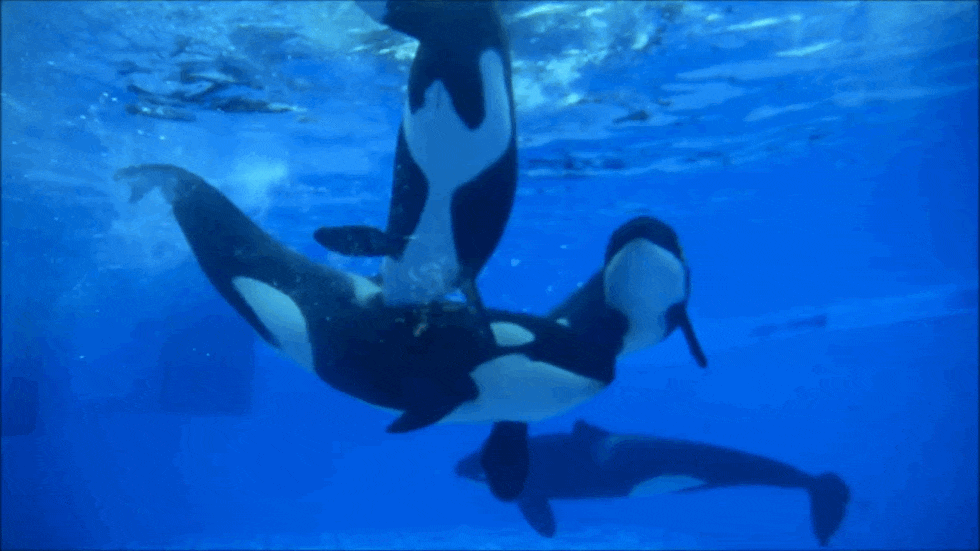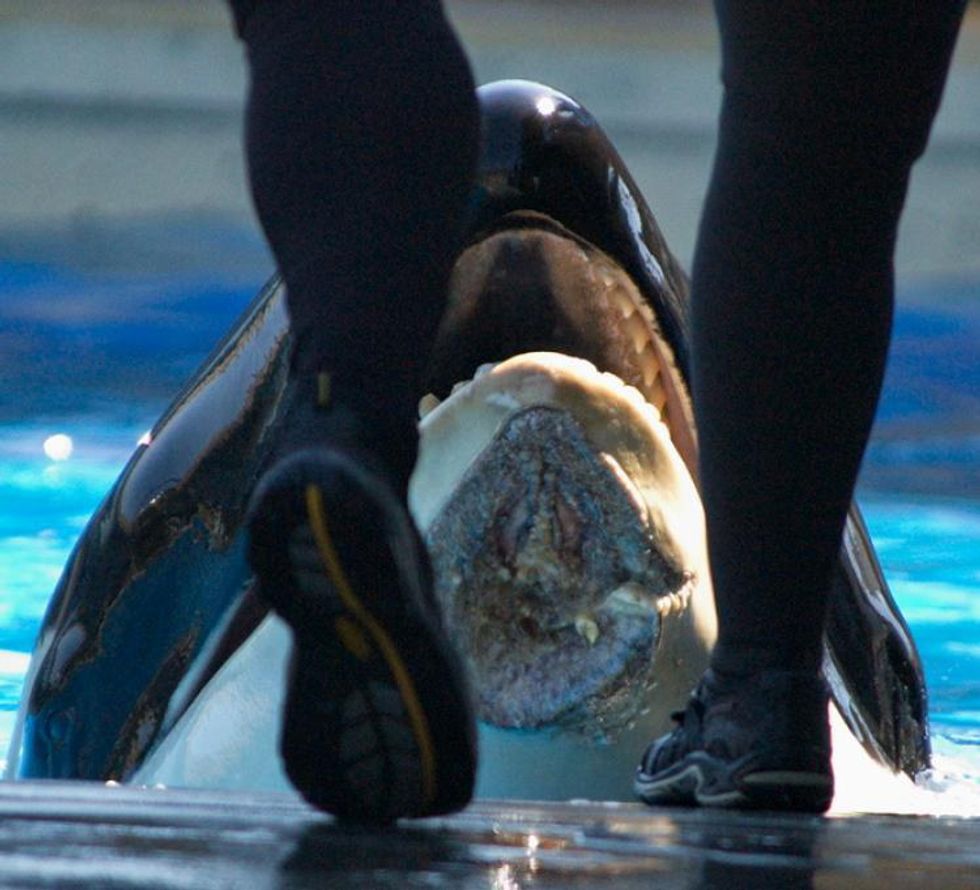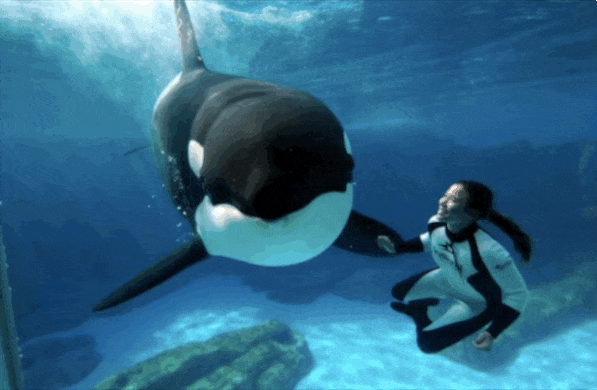When I was kid, I was just like any other naive observer in the bleachers of SeaWorld. Blown away at how magnificent and amazing the orca show was. The giant, exotic animals leaping and flipping out of the water, with people standing on them no less. The killer whales "smiling" and splashing my family with the ice cold water. I was ecstatic and of course, wanted to be an orca trainer when I grew up.
However, years later, the well known CNN documentary Blackfish premiered in 2010. It turned its cameras not to the show, but to what makes the show happen. The abuse and torment these giant mammals endure on a daily basis were finally emphasized to the public. Nearly 21 million people tuned in for the mind blowing film.
But unlike the orcas, the horror ended for us when we turned off the television. Whales at SeaWorld are confined to pathetically small tanks with other random orcas in what SeaWorld would call their pod. Wild orcas swim about 100 miles in a day. In order to equate that in captivity, an orca would have to swim around the perimeter of the tank over 1,000 times!
Additionally, the amusement park uses training techniques such as withholding food from not only the orca being trained, but also the other orcas in the tank. This creates frustration of the orca and tension throughout the entire tank which usually results in the whale being raked by other whales with their teeth.
In the ocean, if whales are being aggressive to each other, there are miles and miles of water to provide some space between the whales. But in captivity, there is absolutely no place for an orca to escape which often leads to injury or death.
Killer whale Nakai was injured on a sharp metal edge in his tank at SeaWorld while trying to escape the aggression of two other whales.
Most importantly orcas are extremely family oriented. In the wild, babies will remain with their mother for the rest of their lives, as opposed to in captivity, where babies are taken from their mothers almost as soon as they're born. In addition, they are placed with whales from different areas around the world and who speak totally different languages.
These majestic whales shouldn't have to endure so much suffering just to make a profit. They deserve to swim endlessly in the ocean surrounded by their family. Progress is being made with SeaWorld's end to their breeding program and the shutdown of orca shows in San Diego. However, the death of Tilikum is a painful reminder of the sad reality for whales in captivity. It's time to empty the tanks.
























